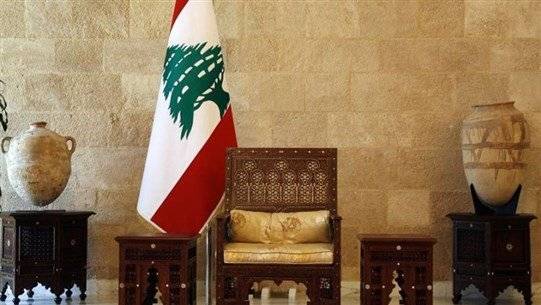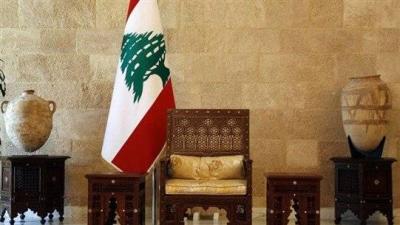Amid the Lebanese anticipation regarding the outcome of presidential communications and initiatives, Christian parties are currently absent from the competition to bring one of their candidates to the presidency. This absence marks the third instance following the events of the second presidential election and the subsequent assignment of the "third president" to form the government. This has led to questions regarding the "effectiveness" of Christians in reshaping authority and the current political equation, especially since some place this national entitlement at the core of interest for the legislative blocs most representative of Christians.
In this context, MP Simon Abi Ramia explained to "Nidaa Al-Watan" that the approach of Christian blocs to the presidential election is different from other entitlements imposed by the system and the parliament's structure. He noted that the unity of Shiite deputies around President Nabih Berri was sufficient to propel him forward without the votes or support of major Christian blocs, despite the Christian backing he received from independent deputies or those with a particular independence. He pointed out that this issue also reflected on the assignment of President Najib Mikati to form the government.
He observed that due to the constitutional requirement related to the Maronite top position in the country and its Christian implications, a presidential candidate must have the support of any significant Christian blocs, hoping that the largest Christian blocs, the Free Patriotic Movement and the Lebanese Forces, will support him.
MP Said Asmar, for his part, contextualized the Lebanese Forces’ failure to announce their presidential candidate as a reflection of their commitment to choosing and securing a president, avoiding the superficiality of presenting candidates with no chance of success. He emphasized that this commitment drives them to maintain communication channels with all parties that believe in a sovereign and independent Lebanon, free from any foreign tutelage, which necessitates also not presenting a candidate and asking others to support them.
He highlighted the importance of communication and cooperation between the sovereign parties and deputies, which the “Strong Republic” bloc relies on in cooperation and agreement to select a president that reflects Lebanon and the voters who sent their representatives to parliament to achieve the required change. He confirmed that the effectiveness of Christian forces and parties would become apparent once President Nabih Berri calls for a session to elect the president, expecting a tangible outcome reflecting the communications conducted by the Lebanese Forces with most parties, leading to their proposal of a presidential candidate.
Regarding his fear of a repeat of the scenario of the second and third presidencies as well as the council's bureau, he noted that the events constituted a setback for the change forces after the “Lebanese Forces” supported the independent candidate Ghassan Skaf for the vice-presidency of the council, expressing regret over the lack of support from the “opposition” forces around him, leading to the election of Elias Bou Saad, backed by March 8 forces.
He considered that the failure of the “opposition” forces in electing the council’s bureau and its committees served as a lesson encouraging them to coordinate to prevent the repetition of previous mistakes, noting that communication with the "independents" aims to gather around a candidate that meets the aspirations and hopes for change. While emphasizing the necessity of conducting presidential elections within constitutional deadlines, he rejected discussing delays or sabotage of this entitlement, stressing the importance of electing a president as soon as possible, in line with their respect for constitutional deadlines, hoping that this occasion would be a chance to elect a president who resembles them.
Despite the Lebanese Forces betting on consensus among the “opposition” deputies, MP Simon Abi Ramia sees ambiguity in the stance of the "Free Patriotic Movement" and its lack of initiative to support any candidates. He believes this aligns with the “Movement’s” call for a dialogue among national components to pave the way for the success of the entitlement, emphasizing that the president should meet the specifications stated by MP Gebran Bassil regarding support from Christian blocs or facilitating such support. He pointed out that both the “Movement” and the “Forces” could provide this backing post the last elections, indicating that “national dialogue” necessitates gathering Christian forces and engaging in a Christian-Christian dialogue linked to this entitlement.
Regarding whether the "Movement's" hesitance to support any candidate is linked to dialogue, he stated that approaching this entitlement is a comprehensive approach that transcends names, leading up to the president's program and the support that should accompany his term. He assured that there is legislative activity and meetings among deputies from various blocs seeking to ensure this entitlement succeeds, away from the media, which adds a serious character to them and shields them from potential obstacles due to the spotlight.
He expressed that Christian blocs are obliged to reach an agreement and understanding before the expiration of the constitutional deadline, dismissing the impact of the exchanges and aggressive messages from both Dr. Samir Geagea and MP Gebran Bassil on reconciling the two parties, placing this within the normal context of political work, which does not preclude reconciliation and dialogue. He stressed that reaching a rescuing president with the required Christian support necessitates serious and constructive dialogue among different parliamentary blocs, especially between the Free Patriotic Movement and the Lebanese Forces.
Regarding the initiative of the 13 deputies, he viewed that the Lebanese framework has shown the impossibility of any political forces imposing their views on others, leaving open the discussion on the possibility of constructive collaboration regarding a roadmap following an assessment of the meeting with them.
Concerning the possibility of boycotting the election session before reaching a president supported by the “Movement,” Abi Ramia left all options open, hoping to reach and agree upon a president meeting the specifications laid out by the “Movement.” Additionally, member of the Strong Republic bloc, Said Asmar, argued that the specifications included in the initiative of the 13 deputies are not subject to disagreement, noting that meeting with them will involve clarifying their approach regarding selecting a president from outside the alignments. While confirming their rejection of sectarian alignments, he simultaneously emphasized the need for a sovereign president who confronts smuggling, theft, and plundering.
He considered that the specifications included in the initiative were previously called for by the Lebanese Forces and represent a meeting point for supporting the initiative, hoping to select a candidate capable of reviving Lebanon away from successive presidents who have been dictated by compromises and deals that have led them to cater to everyone, noting that this experience has led to the current situation in Lebanon. He rejected continuing this approach and confirmed their pursuit of change, leaving the discussion of potential presidential names to the results of ongoing meetings, ensuring that the candidate is subject to consensus among all, free from any imposition by one party over another.




